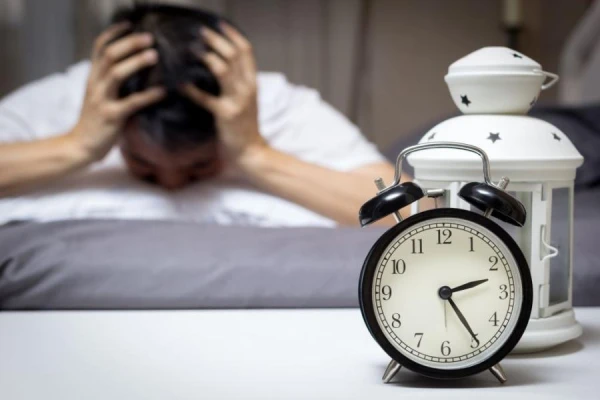
Many people wonder what exactly prevents them from sleeping at night. Some attribute it to stress and negative thoughts, others blame the weather and meteorological conditions, while others believe that the cause lies in circadian rhythms.
What exactly prevents people from sleeping well at night was explained by Alexey Melekhine, a candidate of psychological sciences, psychoanalyst, cognitive-behavioral therapist, and sleep specialist.
A lot has already been said on this topic, and many people have spent hours searching for the reasons. However, often it is the people themselves who become the cause of their sleepless nights, or rather, their behavior. It is important to consider all aspects — personal experience, attitude towards oneself, what they sacrifice, and how they overload themselves. All of this directly affects the quality of sleep. The reason may also lie in physical health issues caused by somatic factors that have not been timely recognized and treated.
Nowadays, we can observe how people have stopped taking care of themselves with due attention and compassion. They do not take care of their nervous system and psyche, which ultimately leads to sacrificing sleep. Many strive to be as productive as possible — working almost around the clock, constantly loading themselves with tasks and solving them even after the workday.
Is it worth trying to improve sleep quality?
There are many techniques, practices, and programs aimed at improving sleep and its restoration. People literally “stuff” themselves with these methods, trying various options, and sometimes even combining them. They try to program themselves for quality sleep, but this usually does not yield results.
Some try to physically tire themselves before bed or finish tasks they did not manage to complete during the day. Many, feeling tension throughout the day, begin to “reward” themselves in the evening — resorting to food, alcohol, or even reading.
There is also an unconscious method of preparing for sleep. A person accumulates tension and irritation throughout the day, and in the evening allows themselves to unwind so that their nervous system can relax. Such individuals often express their negative emotions online, leaving anonymous reviews and comments, which serves as a way for them to release tension rather than as a sincere opinion.
What is necessary for full sleep?
To sleep at night without problems, the nervous system must feel safe, not be in a state of overstrain, and not be ready to fend off attacks. A person must feel calm and secure, which will create a psychological cocoon that allows them to let go of all the day's problems and fall asleep peacefully.
To achieve this feeling of safety, one must work on themselves. The first step is behavioral analysis. It is necessary to sit down and think about what exactly you are doing to yourself: are you trying to exhaust yourself before sleep or, on the contrary, calm down. This will help you look at yourself from the outside and better understand what the problem is.
The next step is to address sleep hygiene issues. It is undoubtedly important, but without extremes. You cannot force yourself to sleep artificially, as this is a natural process. If a person overloads themselves with recommendations, gadgets, and medications to improve sleep, it will not lead to success. Firstly, they do not understand why it is necessary, and secondly, the body only becomes additionally overloaded with these “musts.”
Thirdly, it is important to create a zone of safety at home. Here, you should develop your rituals and anchors. This should be something that brings you joy and creates a sense of comfort and safety. You will perform such rituals because you want to, not because someone said it should be done.
It is also worth paying attention to what is called toxic correctness or efficiency (orthorexia), when a person wears a mask, for example, of employee of the year, and does not take it off almost around the clock.
Fifth, check if you are overwhelmed with emotions. For this, it is useful to perform a simple technique before bed: 5 minutes — I am not here. Here, it is important to ask yourself the question: “How do I feel emotionally? What is happening to me?” Then, you should offer yourself to be a friend and treat yourself with care. This practice of self-compassion and self-empathy will help you better understand yourself and your experiences. As a result, sleep will improve, as a person will be able to meet their needs, and the psyche will relax.












